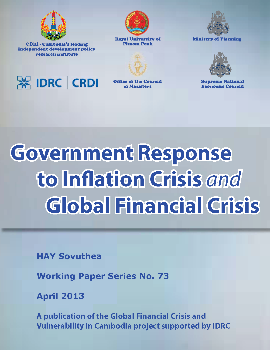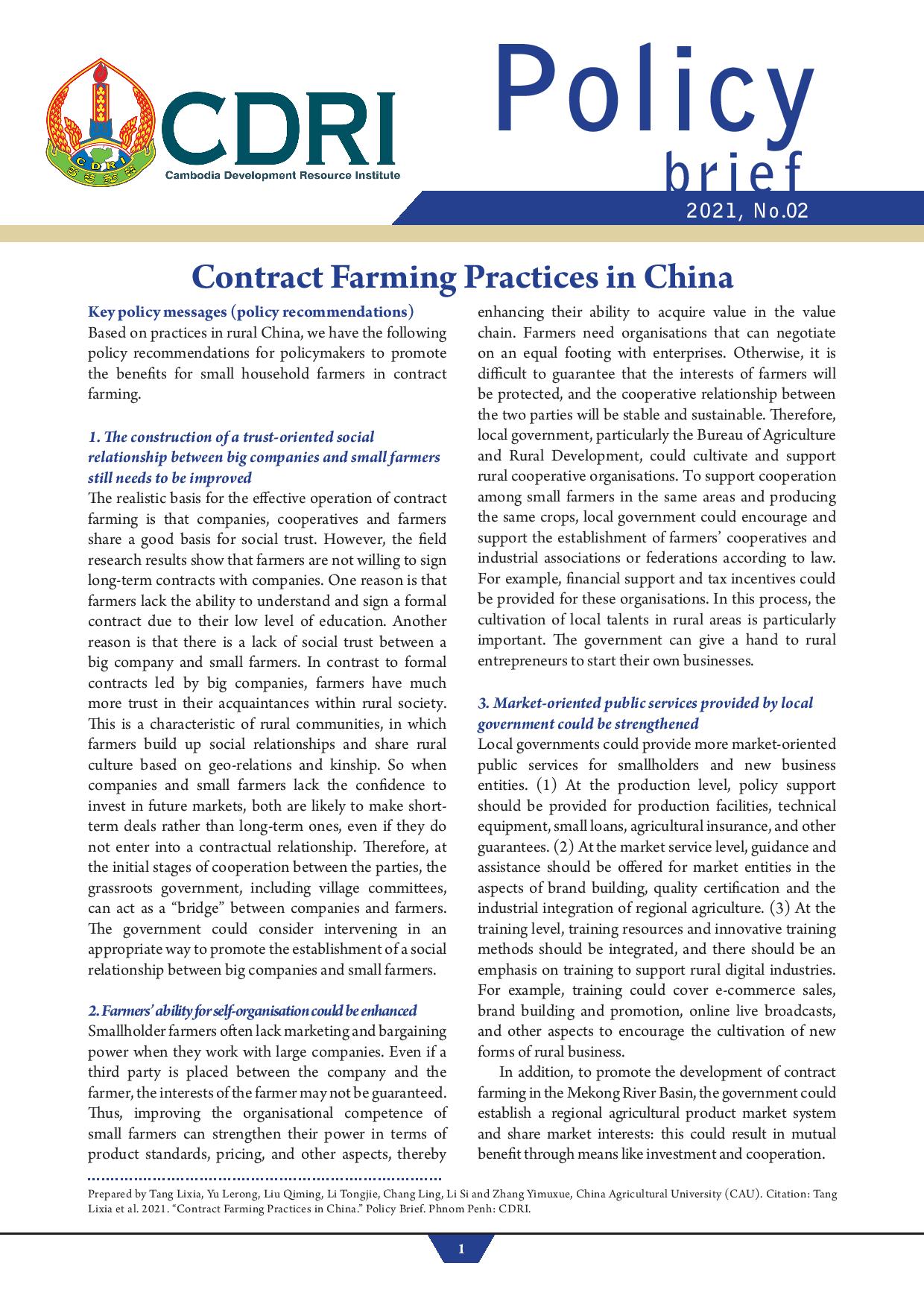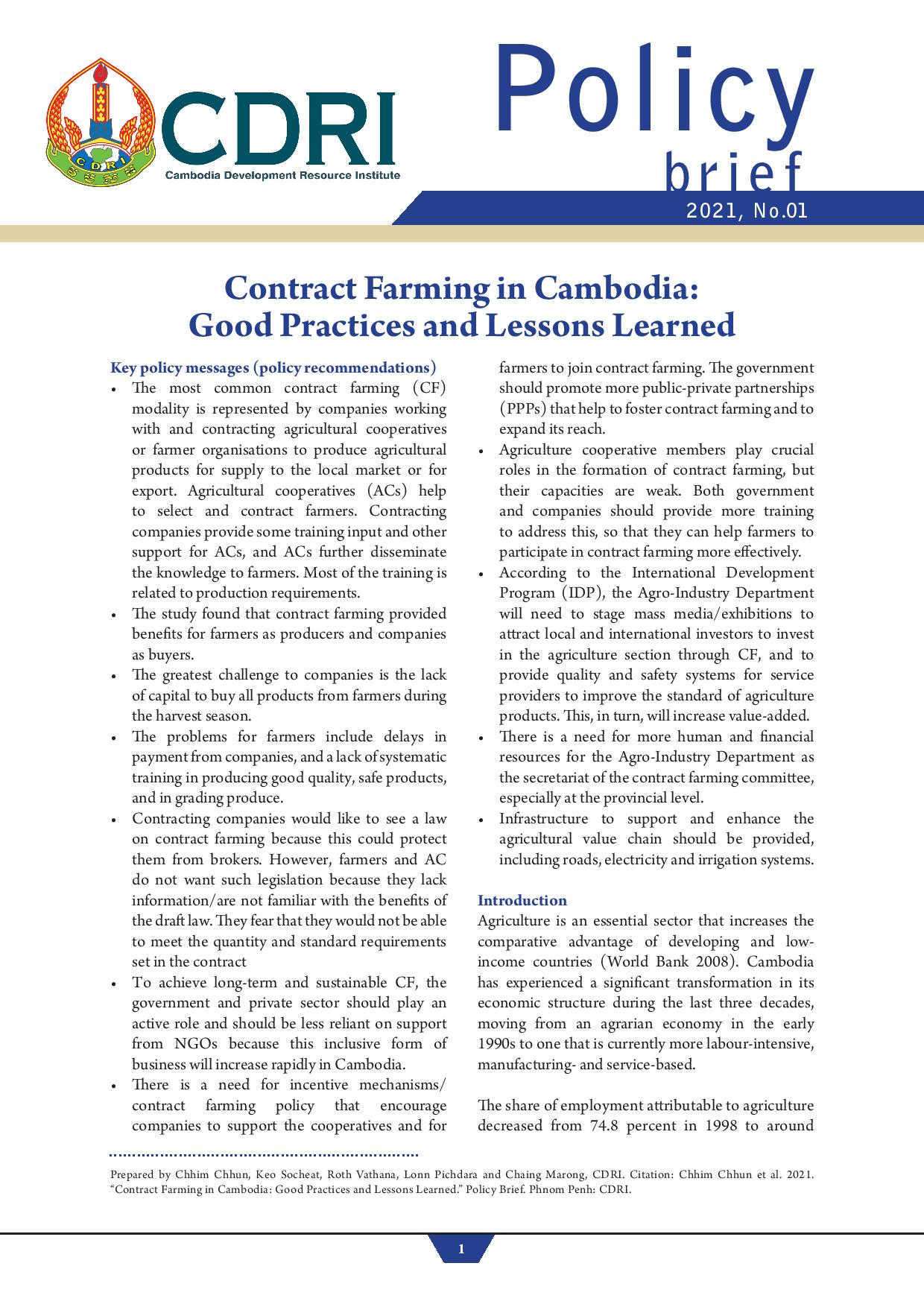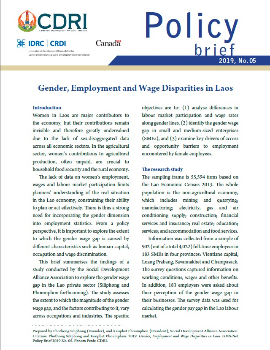
Government Response to Inflation Crisis and Global Financial Crisis
Keyword: Macroeconomic policy, inflation and growth, fiscal and monetary coordination, external shocks, Cambodia economic recovery
Abstract/Summary
This paper takes stock of the domestic macroeconomic policy deployed in mitigating the highest inflation and lowest growth Cambodia had experienced since 1994. Fiscal and monetary policies were well-coordinated alongside a package of administrative measures to tackle soaring inflation resultant of the oil and food price hikes in 2007 and slowdown during the global economic crisis in 2008-09. Albeit Cambodia was well on the way to recovery by 2010, the crises exposed the limited effectiveness of fiscal and monetary policies to weather external shocks. Nevertheless, the export-oriented private sector-led growth strategy Cambodia is presently embarked upon remains valid. Both macroeconomic policy arms clearly need strengthening. Fiscal tightening will replenish government deposits, and stronger budget institutions, the targeted outcome of the Public Financial Reform Programme, will improve revenue administration and expenditure efficiency. Monetary policy will be more autonomous and more options available through gradual de-dollarisation and the establishment and development of an active money market. Moreover, sectoral policy such as the Policy Paper on the Promotion of Paddy Production and Rice Export, the National Social Protection Strategy, the Tourism Strategic Development Plan 2012-20 and the policy and financing mix to promote industrial development will lay comprehensive foundations for better macroeconomic intervention in the future.



